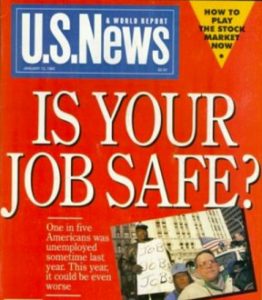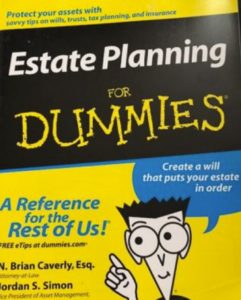
While many financial experts claim that silver-as-money is a barbaric relic from 150 years ago, JP Morgan has amassed a stockpile of at least 700 million ounces (according to silver researcher Ted Butler) that is worth over $10 billion. This stockpile began in 2011 when JP Morgan opened their own silver warehouse, starting with no silver. Although JP Morgan is the largest commercial stockpiler of silver, there are 7 other large financial institutions (Such as Scotia Bank, Goldman Sachs, Citigroup, Deutsche Bank, HSBC, Bank of Japan, etc.) that are also involved in silver trading on a massive scale. Why is this?
Are these investment houses/bullion banks just sitting on vaults of commodities like crude oil, wheat, copper, and silver? JP Morgan is the custodian for the giant silver ETF (ticker symbol SLV), however, they have around 8 times the amount of silver necessary for SLV and are steadily increasing their stockpile. Less than 5% of their silver holdings are registered for trade on the COMEX exchange. Unless JP Morgan is holding all of these ounces for customers (highly unlikely), then JP Morgan may be holding all of this silver as a speculation. Be aware that stockpiling silver isn’t cheap – there are expenses such as facilities, security, utilities, tracking, physically moving it (the 1,000 oz. bars weigh 62.5 pounds each), physical audits, and more. These banks operate for a profit, so where is the profit to cover the cost of holding this stockpile coming from?
JP Morgan also holds the largest short position in silver on the COMEX futures exchange where the price of silver is set. Again, there are 12 other giant financial firms also shorting silver (betting on a price drop). Silver’s open interest in futures contracts divided by the days-of-production is larger than the open interest/daily production for crude oil, wheat, corn, soybean, copper, and sugar – combined. Since these other industries are larger than silver, then why is open futures contracts on silver/daily production the highest, by far?
The largest financial firms in the world are increasing their stockpiles of silver while simultaneously shorting the price of silver in the futures market; and doing all of this in unison. Why is this?
A few theories to explain this mystery by silver analysts include:
- These bullion banks have been suppressing the price of precious metals to hide true inflation since the U.S. went off the gold standard in 1971. When excessive money printing and true inflation can no longer be controlled, silver is expected to soar, far more than gold, and they are preparing for what they believe is an eventuality.
- These bullion banks are expecting silver to skyrocket in anticipation of the U.S. dollar beginning to lose its standing as the world’s reserve currency. Then the banks will cover their short positions, stand aside, and let the price of silver rise to create a giant capital gain.
- These bullion banks are just making money on the pendulum swings in price. Their model is to increase their short silver position to drive the silver price down, then increase their stockpile at a cheaper price and reduce their short positions. After which they allow the price to drift back up again for a profit before throwing on a giant new short position; making profits on these price swings, over and over.
- JP Morgan’s physical stockpiles are fake, they really just have paper silver contracts to help them manipulate the price of silver.
- Today, most non-Western central banks are adding to their gold reserves as fast as they possibly can (China, Russia, India, Turkey, Hong Kong, Egypt, Indonesia, Mongolia, Kazakhstan, and others) leaving the other precious metal, silver, to be controlled and cornered by the relative little guys, the large banks.
For more investment bank silver history, in 2008 Bear Stearns went bankrupt, partially from losses on their giant naked-short position in silver; which was forced to merge with JP Morgan for $2 per share. Canada’s Scotia Bank lost between $500-600 million on their naked-short position in silver in 2011 on a price spike. Shorting silver by banks has been around a long time, but at this time many are also holding physical silver.
Can anything be inferred or deduced from all of this? In my opinion, it is still too much of a mystery for a retail investor to follow with any confidence:
- A dozen Central Banks in “Emerging Market Countries” are loading up on physical gold. This is so their country can offer a stronger and more competitive currency in anticipation of the next world’s reserve currency structure. Whatever that structure may be, they are assuming that physical gold holdings will be part of the formula.
- Many of the world’s largest banks have stockpiled physical silver and a few are aggressively adding to their stockpile with a long-term time horizon of years or decades. But they are also actively trying to keep the price of silver artificially low by shorting large amounts of futures contracts.
- The price of an ounce of gold today is $1,207 and an ounce of silver is $14. For as long as I can remember, gold bugs have been claiming the fair price for gold is $10,000-$25,000 and silver bugs have been claiming the fair price for silver is somewhere between $100-$500 per ounce. Well, I’ve been hearing these claims for over 45 years and nothing like that has yet occurred.
- There is a large community of “silver stackers” who buy more physical silver on a regular basis, as some or all of their savings. They add to their silver stack in anticipation of the next major fiat currency collapse, hoping that precious metals will soar in value. Some silver stackers have been doing this since the end of WWII, other stackers have been doing this since the U.S. took the world off of the gold standard in 1971. Although there have been a couple bull markets in precious metals since then, I wouldn’t expect the colossal payoff the stackers have been hoping for anytime soon.










